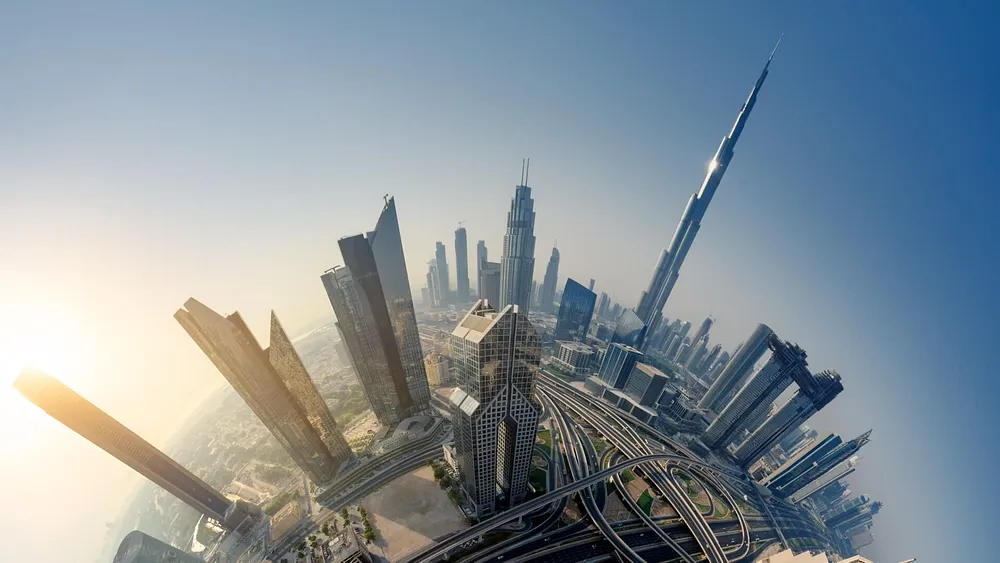Signature Collection
Explore SignatureDubai’s real estate market has consistently demonstrated resilience and opportunity, even in challenging times. This is why it continues to capture the attention of investors worldwide. Known for its architectural marvels, investor-friendly policies, and strong economy, Dubai thrives as a hub for property investment. As we are well into 2025, the city has observed tremendous growth, driven by emerging trends and visionary government initiatives.
Dubai real estate market outlook: As we step into a new year, the Dubai real estate market outlook remains optimistic, supported by continued investor confidence, a diversified economy, and government-backed infrastructure developments like the Dubai Urban Tech District, new transport corridors, and expanded airport capacity that are all expected to significantly boost real estate demand.
Here, we’ve got a comprehensive Dubai Real Estate forecast for 2025. Let’s start with the key milestones of 2024 and then examine the trends, policies, and projections that will define Dubai’s property landscape in the coming year.
2024: A Year of Milestones
Dubai’s real estate market demonstrated remarkable stability in 2024. The real estate sector achieved a remarkable milestone of AED 50 billion in property sales. This record-setting performance is fueled by a strong increase in off-plan transactions and sustained demand for luxury residential properties. As per Provident’s Dubai Real Estate Market Q3 2024 report, townhouse sales surged by 385%, while average prices experienced a 10.2% increase compared to Q3 2023.
The above Dubai property market figures reflect not just economic recovery but also growing investor trust in the market, bolstered by transparent regulations, upgraded property laws, enhanced digital platforms for transactions, and high ROI opportunities across luxury and mid-tier segments.
Surge in Off-Plan Properties
Interest in off-plan properties reached new heights in 2024. Investors flocked to these developments for their potential capital appreciation, driven by Dubai’s long-term vision and infrastructure projects.
For off-plan apartments, Jumeirah Village Circle, Business Bay, and Dubai Marina continue to dominate as top choices, while DAMAC Lagoons, DAMAC Hills 2, and Villanova emerge as the most sought-after townhouse options. When it comes to off-plan villas, investors show a strong preference for DAMAC Hills 2 and Dubai Hills Estate.
Dubai property price trend: The surge in off-plan sales has also influenced the Dubai property price trend, pushing values higher in key communities and creating competitive investor activity. In fact, average price per sq ft in off-plan villa communities rose by 15% in 2024 alone.
Sustainability and Smart Living
Eco-friendly and smart developments gained significant traction in 2024. Projects like The Sustainable City set a benchmark for combining technology with sustainability, a trend that is expected to continue influencing UAE real estate trends in 2025.
If you’re looking for exclusive projects, here’s a look at the most luxurious and sustainable projects by Aldar.
2025: What Lies Ahead
Residential Market Forecast
The luxury real estate market is expected to remain highly active, with high-end properties continuing to attract ultra-high-net-worth individuals. Prime areas such as Palm Jumeirah, Emirates Hills, and Bluewaters Island are projected to maintain strong demand, with average prices per square foot anticipated to increase by 10-12% in 2025.
Furthermore, the addition of approximately 30,000 new residential units by the end of 2025, including developments like Dubai Creek Harbour and Emaar Beachfront, is set to expand the market and offer a diverse range of investment opportunities.

Commercial Market Growth
Dubai’s role as a global business hub will fuel demand for premium commercial spaces in districts like Business Bay and DIFC. Additionally, the city’s strategic position as a logistics hub will drive interest in industrial and warehousing properties, opening up Dubai property investment opportunities across diverse sectors.
Rise of Short-Term Rentals
Tourism is set to rebound further in 2025, driving the demand for short-term rentals in areas like Dubai Marina and Downtown Dubai. This sector will remain a lucrative option for investors looking for high returns with flexible rental terms.
Sustainability and Smart Living
Buyers will increasingly prioritize properties that align with environmental and technological standards. Smart homes equipped with AI and energy-efficient systems will dominate new developments, shaping the real estate trends in Dubai for 2025.
Factors Shaping Dubai Real Estate in 2025
- Government Initiatives
- Long-term visa programs and property law reforms will continue to attract foreign investment.
- Tax-free property ownership will remain a key incentive for international investors.
- Sustainability Goals
- Green developments will become the gold standard, with communities like The Sustainable City leading the way.
- Global Economic Conditions
- While Dubai’s market is resilient, factors such as oil price fluctuations and global economic shifts could influence its trajectory.
- Tourism and Infrastructure
- Infrastructure projects and Dubai’s global appeal as a tourist destination will sustain demand for real estate.

Practical Tips for Investing in Dubai Real Estate in 2025
- Research Market Trends: Stay informed about Dubai property market analysis to identify high-performing areas and sectors.
- Choose Reliable Developers: For off-plan investments, focus on developers with a proven track record.
- Diversify Investments: Explore opportunities across residential, commercial, and industrial properties to mitigate risks.
- Financial Planning: Factor in additional costs such as registration fees and service charges to ensure realistic budgeting.
FAQs About Dubai Real Estate in 2025
Top areas include Downtown Dubai, Dubai Marina, and Palm Jumeirah for luxury properties, while emerging neighborhoods like Dubai South offer affordability and growth potential.
Both options have benefits. Off-plan properties offer flexible payment plans and potential capital appreciation, while ready-to-move properties provide immediate rental income.
Sustainability, smart technology, and demand for high-yield rental properties will dominate Dubai real estate trends 2025.
Risks include global economic fluctuations and service charges. However, Dubai’s diversified economy and investor-friendly policies provide stability.
Begin by researching freehold zones, working with licensed agents, and budgeting for additional costs like registration fees and service charges.
No, Dubai does not levy income tax on rental income or capital gains, making it highly attractive for real estate investors seeking tax-efficient returns.
Yes, foreigners can buy freehold properties in designated areas of Dubai. These properties can be bought, sold, or rented without restrictions.
As of 2025, investors must invest a minimum of AED 2 million in property (fully paid or via mortgage) to qualify for a 10-year UAE Golden Visa.
Once construction is complete, the developer notifies the buyer for a final inspection. After settling service charges and receiving DLD approvals, ownership is officially transferred.
According to the latest Dubai property market forecast, prices are expected to either stabilize or rise moderately in prime and emerging areas, depending on supply and global trends.
No, industry experts have dismissed the idea of a Dubai real estate bubble. The market's growth is supported by regulated development, strong foreign investment, and real end-user demand, making it fundamentally stable and sustainable in the long term.
The Dubai housing market forecast for 2025 predicts continued growth, with strong demand for both off-plan and ready properties driven by new visa reforms, infrastructure projects, and rising rental yields. Suburban areas and master-planned communities are expected to gain traction as more residents seek spacious, family-oriented living environments.
For more information, get in touch with us at Provident
 Apartments
Apartments Villas
Villas Townhouses
Townhouses Penthouses
Penthouses Commercial
Commercial See All Properties
See All Properties Commercial
Commercial Property Management
Property Management List Your Property
List Your Property Mortgages
Mortgages Conveyancing
Conveyancing Short Term Rentals
Short Term Rentals Property Snagging
Property Snagging Partner Program
Partner Program Currency Exchange
Currency Exchange PRYPCO
PRYPCO Ethnovate
Ethnovate Plots
Plots
